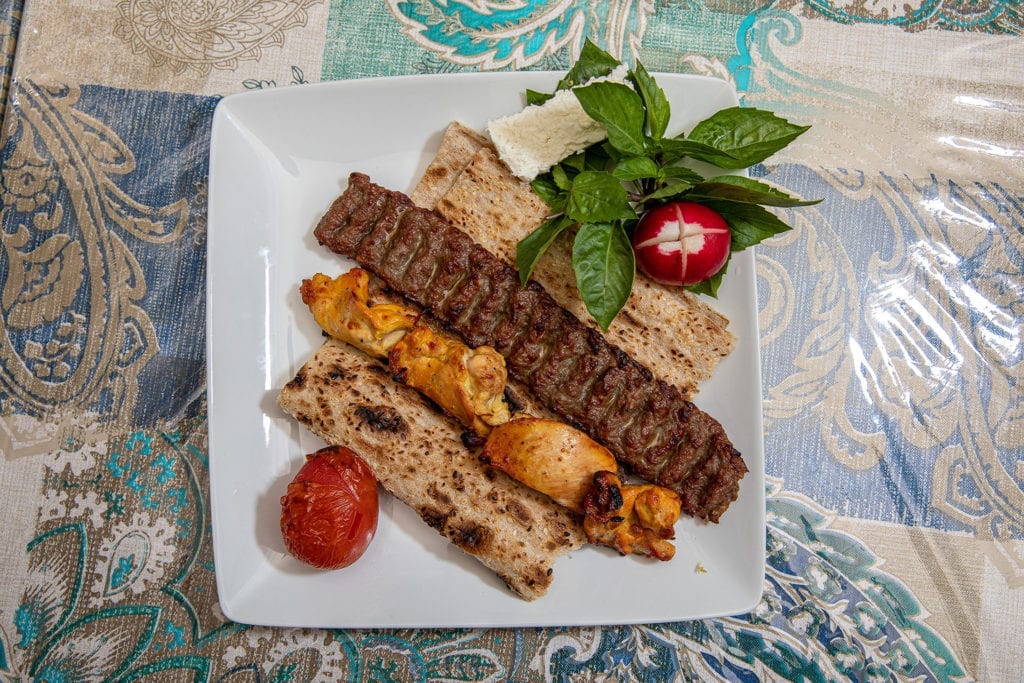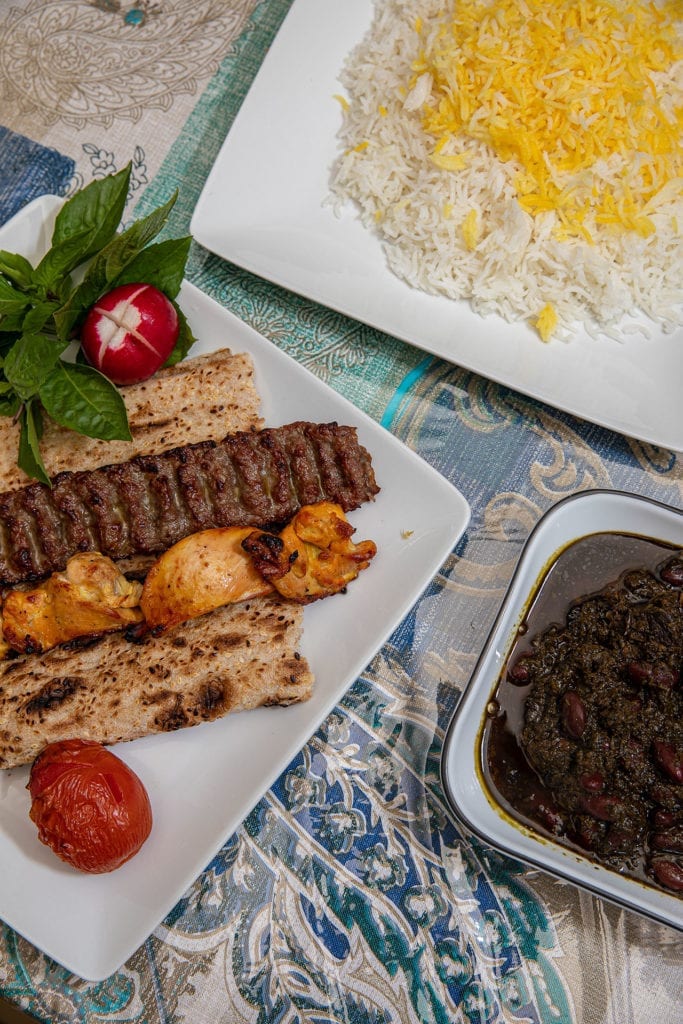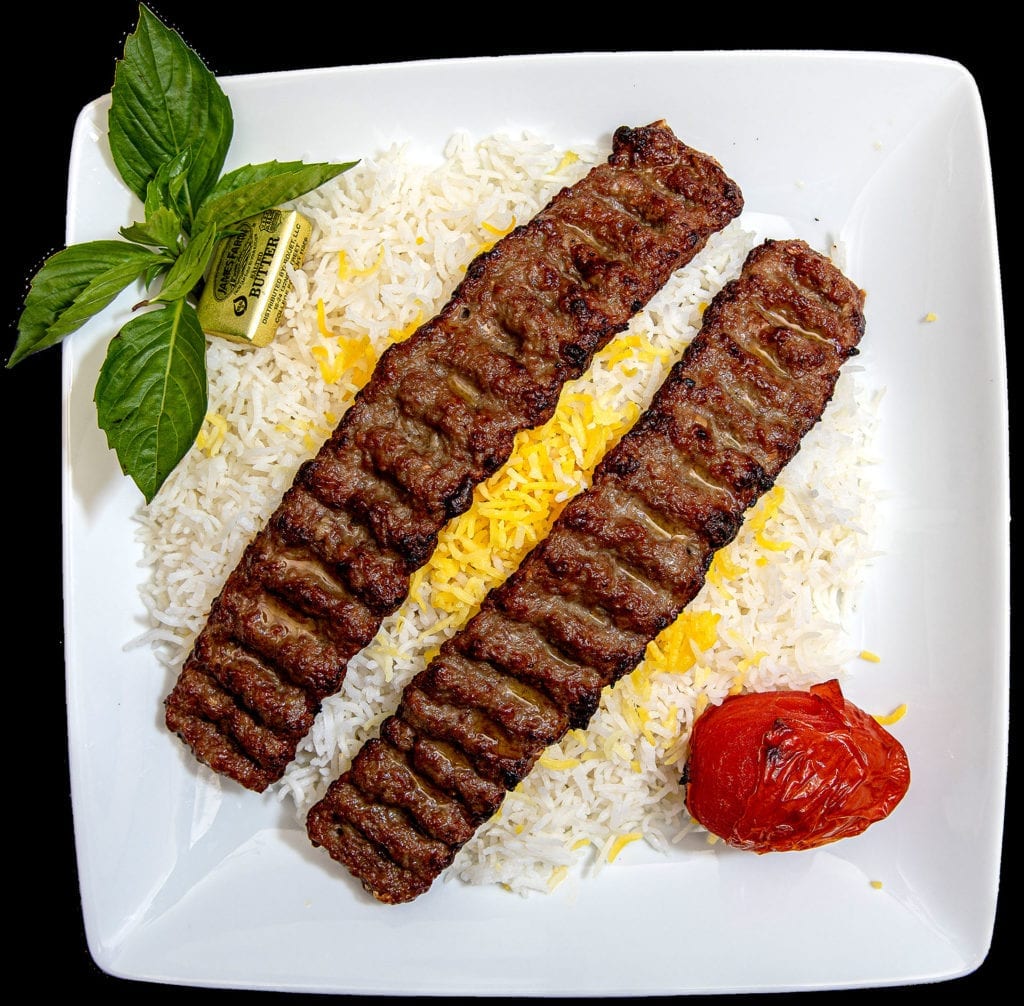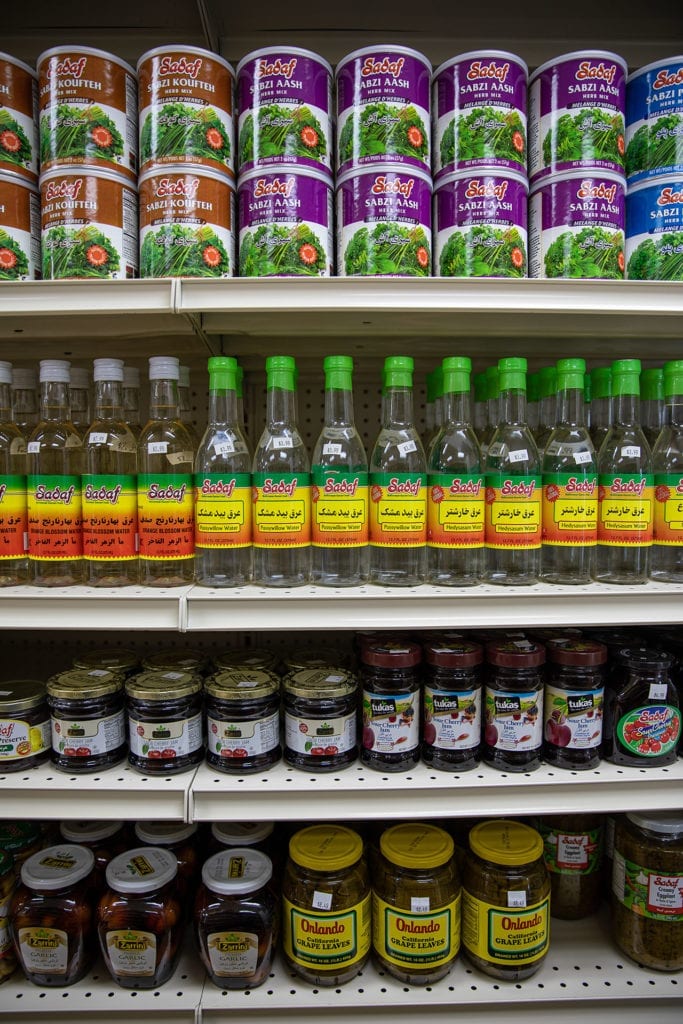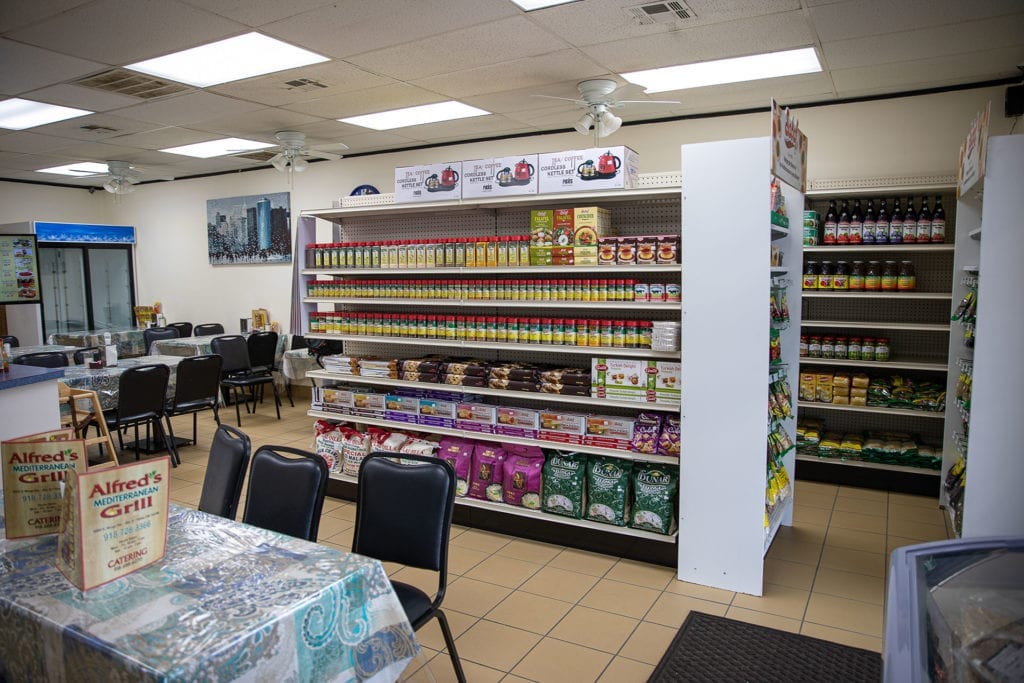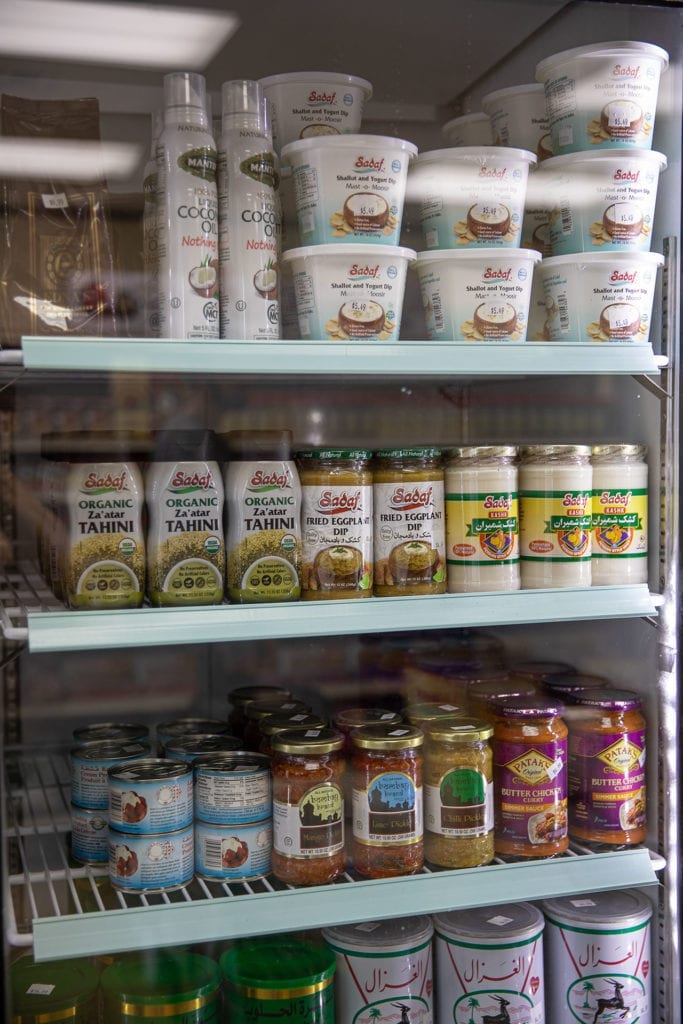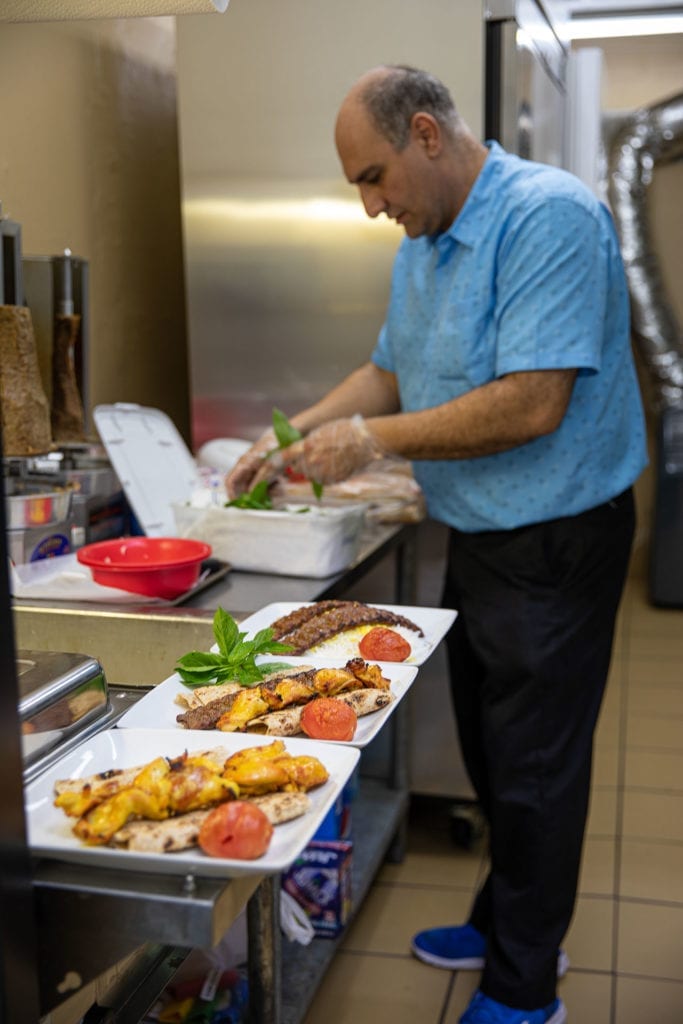Go south on Tulsa’s Mingo Road, and, after you pass Gardner’s Used Books, it’s nothing but flat land, train tracks and sprawling factories. At lunch time, workers from those businesses stream into a tiny restaurant in a small strip mall between the Carousel Lounge and the Spaded and Jaded Tattoo parlor.
A few years ago, this place was Porky’s Kitchen (its slogan: “A working man’s burger joint”). Today, it’s Alfred’s Mediterranean Grill.
Its five or six tables are always packed at lunch, and, in the tiny kitchen next door, Alfred Lazar is in constant motion. He moves from refrigerator to counter, skewers tomatoes, takes phone orders, shapes kebabs and mans the grill with balletic grace.
“I do everything myself,” says Lazar, who also sells a variety of Mediterranean/Middle Eastern goods on small grocery shelves in the store. “I don’t like anyone else touching my cooking. Once in a while, I’ll hire someone for a few hours to wash dishes.”
He studied to be an engineer and uses that training to organize his work.
“I do a lot of catering,” he says. “I once did an order for 80 people all by myself, and I delivered it on time.”
He pulls out a photo of a long line of kebabs cooking, and, next to them, skewers of vegetables, all placed efficiently.
He’s proud of his work, and he should be. Those kebabs are koobideh, Iranian ground beef skewers, which are notoriously difficult to make.

Photos by Josh New 
Alfred’s offers a variety of Mediterranean dishes including kabobs, sangak and sabzi. 
Alfred’s specialities are kabobs, which come with side choices, including rice, pita, yogurt, hummus and tabbouleh.
“It took me four years to learn to make them right,” he says. “You must have the right proportions of ingredients or the kebab will fall apart. Lazy people put in baking soda to make them hold together, but it doesn’t taste right.
“I use nothing but ground beef, onions and salt. I can make one kebab a minute and I’m famous for footlong kebabs. But please don’t tell people how good my koobideh are – they are too much work to make and my hands are sore already.”
A customer and friend – a rotund, jovial professor of computer engineering who has stopped by for a snack – cuts in and says: “Don’t worry. He really wants you to tell people.”
Lazar doesn’t joke about the work. He starts at 7 a.m. and makes yogurt and hummus fresh every day. He makes fresh tabbouleh every few hours. And it’s not fast food – each kebab is made after the customer orders, and it takes about 20 minutes. (You can phone in your orders in advance.) His customers, the ones who used to go to Porky’s, accept the wait. They’ve learned to love the food, and this makes Lazar gleam.
“At first, I sold mostly cheeseburgers, but after a while people changed their orders,” he says. “First they’d try the gyros, then the kebabs. American people love my chicken kebabs. I use thigh meat, flavor it with lemons. It’s so juicy.”
Even the burgers and fries are special.
“I use the same meat as the kebabs and I change the oil frequently in the fryer,” he says.
Lazar has always loved and been fascinated by cooking.


Along with authentic eats, Alfred’s also sells a variety of Mediterranean/Middle Eastern herbs, spices and other food items. 

Alfred Lazar expertly operates a one-man kitchen.
“Even in baby time, I started cooking,” he says, and then apologizes for his rare error in diction. “I speak Arabic, Turkish, Armenian and, of course, Farsi, but English is so difficult.”
Lazar grew up in Tehran, Iran, and learned to cook by helping his mother and his maternal grandmother.
“We used to have meals for the whole family – uncles, cousins, everyone,” he says. “In the Middle East, families are always coming together to sit and talk and eat.”
He wryly adds, “But in America, that’s only on Thanksgiving.”
He uses his grandmother’s recipes today.
“The first time I cooked by myself, I was 9 years old,” he says. “My mother was sick and I made chelo rice. I made it correctly and I was so proud.”
Chelo rice is not easy to make, and, in Iranian cooking, special care is taken with it. Varieties are used that one can’t find in America, and the rice is soaked, boiled and then steamed.
“Sometimes I take shortcuts when we’re busy,” Lazar says, “but I bet you can’t tell the difference.”
Lazar left Iran 14 years ago. After a three-year wait in Turkey, he was accepted as a refugee and came to Tulsa. He’s a proud U.S. citizen. He studied to be an agricultural engineer, but he can’t practice that profession in the United States without re-doing all his university work.
“I had always liked cooking,” he says, “but it was not the profession I wanted to pursue. But in Tulsa, I had the opportunity.”
As many people before him have done, he managed to build from necessity a life that gives him pride and satisfaction.






















